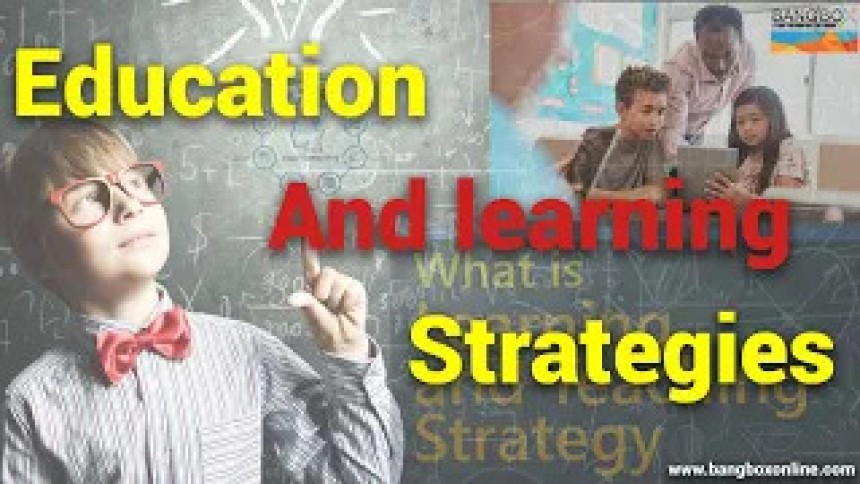
Education and Learning Strategies || Bang Box Online Official
Education and learning strategies play a crucial role in shaping individuals' knowledge, skills, and personal development. With the ever-evolving nature of the world, it is essential to adopt effective strategies that promote lifelong learning. Here are some key aspects of education and learning strategies:
- Active Learning: Active learning involves engaging students in the learning process through participation, discussion, and hands-on activities. It moves beyond passive listening and encourages critical thinking, problem-solving, and collaboration. By actively involving learners in the material, education becomes more interactive and impactful.
- Personalized Learning: Every individual has unique learning styles, preferences, and needs. Personalized learning strategies aim to accommodate these differences and create tailored learning experiences. This approach recognizes that learners have diverse strengths, interests, and paces of learning. By providing customized content, instruction, and assessments, personalized learning enhances engagement and promotes individual growth.
- Blended Learning: Blended learning combines traditional classroom instruction with digital technology and online resources. This approach allows for a flexible learning environment where students can access educational materials, collaborate with peers, and receive individualized feedback. Blended learning promotes self-directed learning, prepares students for the digital era, and enhances the effectiveness of education.
- Experiential Learning: Experiential learning focuses on learning through direct experiences and reflection. It involves hands-on activities, real-world applications, and problem-solving opportunities. Experiential learning enables learners to connect theory with practice, fosters creativity and critical thinking, and enhances long-term retention of knowledge.
- Collaborative Learning: Collaborative learning emphasizes group work and cooperation among learners. By working together, students share ideas, exchange perspectives, and develop teamwork skills. Collaborative learning promotes communication, active participation, and the development of social and emotional competencies.
- Lifelong Learning: Lifelong learning recognizes that education is not limited to formal schooling but is a lifelong pursuit. It encourages individuals to continuously acquire knowledge, develop skills, and adapt to changing circumstances. Lifelong learning strategies include self-directed learning, staying curious, seeking new challenges, and embracing opportunities for personal growth and development.
- Technology Integration: Integrating technology into education enhances access to information, facilitates communication, and provides interactive learning experiences. Educational technology tools such as online learning platforms, multimedia resources, and educational apps support personalized learning, engagement, and collaboration.
- Assessment for Learning: Assessment for learning strategies focus on evaluating student progress, providing constructive feedback, and guiding further learning. Formative assessments, such as quizzes, projects, and discussions, help identify strengths and areas for improvement. This feedback-oriented approach empowers learners to reflect on their progress and make adjustments to enhance their learning journey.
Education and learning strategies evolve with time, reflecting advances in pedagogy and the changing needs of learners. By embracing active, personalized, experiential, collaborative, and lifelong learning strategies, individuals can foster a love for learning, acquire essential skills, and adapt to a rapidly changing world. Education becomes a lifelong journey, empowering individuals to thrive in diverse personal, professional, and societal contexts.
Follow us on:
Platform: https://www.bangboxonline.com/
Facebook: https://www.facebook.com/bangboxonline/
Premium Brand Identity and Custom Software Design services Services by...
Devouttechconsultants delivers expert brand identity design services and custom software d...



